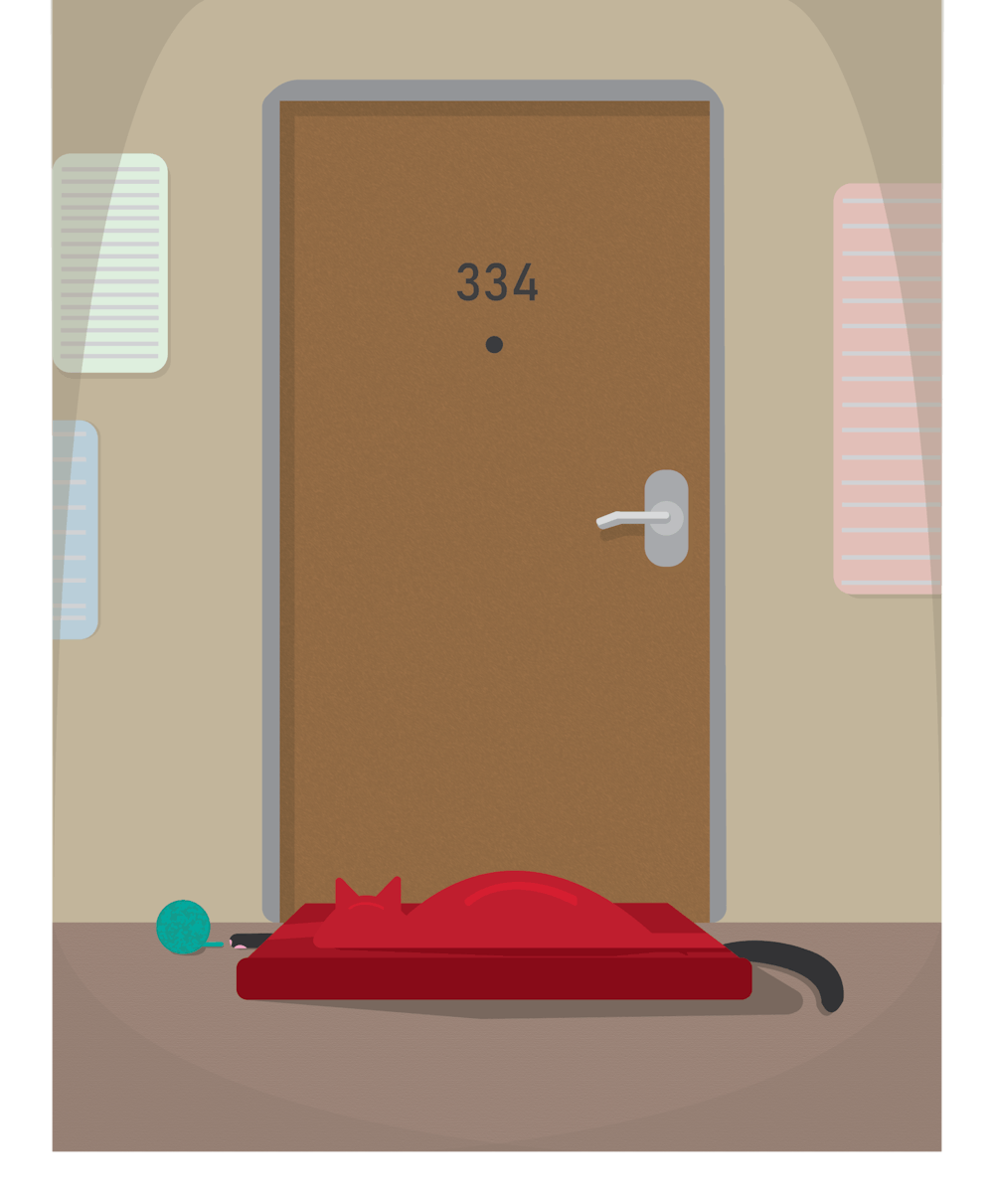Many households worldwide find joy and companionship through pet ownership. For college students, adopting their first furry friends can be a delightful experience, but it also presents responsibilities and challenges when it comes to understanding and complying with university pet policies.
Miami University places a strong emphasis on outlining the prerequisites and limitations associated with pet ownership on campus. According to their policies, non-research animals are typically not allowed on Miami campuses.
As a result, dogs, cats and other domesticated animals are generally prohibited from being in student residence halls and apartments, academic buildings or any other university-owned or university-controlled structures, unless there are specific exemptions in place.
The university's pet policy has some exceptions that cater to different needs and preferences of students and staff. These exceptions include things like service animals that help people with disabilities, emotional support animals approved by the Office of Student Disability Services and even fish as pets in student residence halls and apartments, as long as the fish tanks are no bigger than five gallons.
Remember, even with these exceptions, being a responsible pet owner is crucial. This means following other rules and regulations, like taking good care of your pet and keeping things clean. It's all about creating a friendly and considerate environment for everyone on campus.
I have a deep affection for the pets on campus; their presence never fails to bring joy whenever I encounter them. Still, these policies regarding non-research animals are entirely justified, and they contribute to a harmonious and safe campus environment.
By setting boundaries on pet ownership, Miami can address various practical concerns such as allergies, hygiene, safety, and noise control. Safety is paramount. While most pets are well-behaved, not all animals are predictable, and encounters with untrained and uncertified animals can lead to accidents
Limiting pet policies help ensure the safety of all students and staff on campus. They also ensure that shared spaces and buildings on campus are respected, cleanly, and well-maintained.
Ultimately, as much as we cherish the presence of pets, these limitations contribute to the overall well-being of Miami’s campus. They strike a necessary balance between the enjoyment of having pets on campus and the practical considerations for creating a peaceful community, and respectful environment.
As someone who has seen the positive impact of such policies, I can attest to their importance. During my first year in Ogden, a friend of mine qualified for an emotional support animal (ESA), and she chose a small white dog named Daisy.
Witnessing the transformation in her well-being and academic performance was remarkable. The presence of her ESA provided her with a source of comfort and emotional support that significantly improved her daily life on campus.
ESAsEmotional support animals (ESAs), as well as service animals, are pretty special pets. They provide much-needed emotional support to students dealing with mental, physical or psychiatric disabilities. Having an ESA can really help ease the symptoms of someone's disability.
Enjoy what you're reading?
Signup for our newsletter
To get an ESA, a healthcare or mental health professional has to prescribe it to a student with a disability. It becomes a crucial part of that student's treatment plan.
Miami recognizes that certain individuals may have allergies to animals classified as allergen disabilities. Therefore, the ESA aims to strike a fair balance by accommodating the needs of everyone, offering breeds that are generally preferred, even though they may not be entirely hypoallergenic.
Additionally, its important to note that you can't leave your ESA alone overnight at any time. If you need to be away, you should either take your ESA with you or make plans for someone else to take care of it outside of the University's residence hall system.
Support animals can encourage a healthier lifestyle. Their care routines such as feeding, grooming and exercise promote structure and responsibility in a students life. This structure can help students develop time management skills and a sense of purpose, which can be especially valuable to students during day-to-day college life.
For students who adore animals but can't be with their furry friends, there are great options to consider. You can check out student organizations like Paws for a Cause or explore volunteer opportunities with the Animal Adoption Foundation and Animal Friends Humane Society. They offer fantastic ways to connect with animals and give back to the community.
The presence of animal interactions on campus is a testament to the thoughtful and proactive approach that Miami takes toward promoting the well-being of its students. It extends to nurturing our mental and emotional health, and for some students, a momentary escape from the hustle and bustle of college life and finding peace in the presence of these companions.
Makenzie Ryder, from Commerce, Michigan, is an accomplished senior pursuing a major in marketing and a minor in entrepreneurship within the Farmer School of Business. Alongside her academic pursuits, she finds delight in music and spending time with her family.




